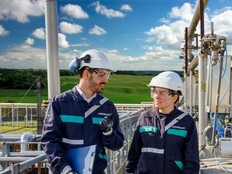- Ethyl Acrylate is produced from bioethanol at Carling, France.
- The product has a bio carbon content of 40% and reduces carbon footprint by 30%.
- Bioethanol is sourced from biomass feedstock.
- Arkema aims to cut Carling's scopes 1 and 2 emissions by 20% with a 2023 investment.

Introduction
Arkema has commenced the production of Ethyl Acrylate using bioethanol at its Carling facility in France. This initiative marks a significant step in the company's efforts to enhance sustainability in its product offerings.
Product Details
The bio-based Ethyl Acrylate features a bio carbon content of 40% and achieves a reduction in product carbon footprint by up to 30%. The bioethanol used in the production process is sustainably sourced from biomass feedstock, aligning with global sustainability goals.
Industry Impact
This development is expected to influence the industry significantly by paving the way for the next generation of sustainable coating products. It supports the broader objectives of reducing carbon emissions and promoting sustainable development within the chemical sector.
Future Plans
Arkema's roadmap includes further decarbonization of its acrylic offerings. This is complemented by a 2023 investment aimed at optimizing production processes and reducing Carling's scopes 1 and 2 emissions by 20%. The focus is on expanding bio-based and lower-carbon specialty acrylic resins and additives for applications in emerging markets such as new energies, e-mobility, and building efficiency.

